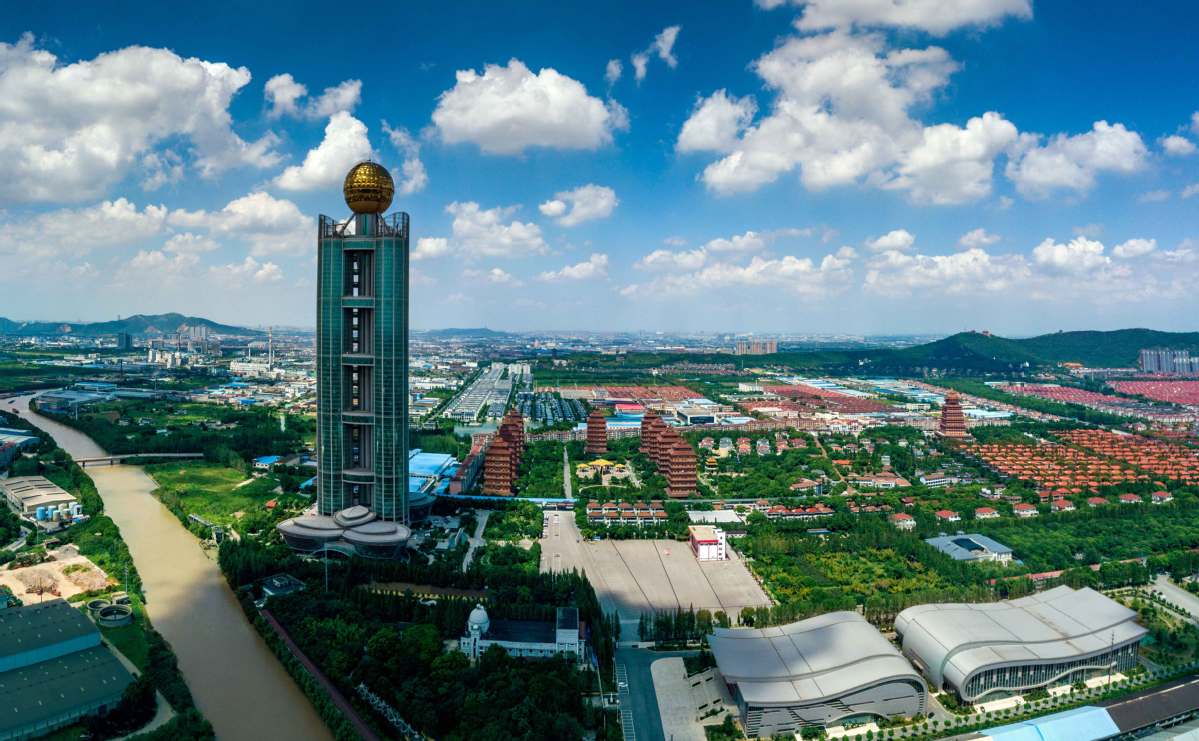Villages walk 40-year path to wealth
By Liu Weifeng in Suzhou, Jiangsu | China Daily | Updated: 2018-12-07 09:32

He Luwei, 37, who has a master's in economics, graduated from Zhejiang University in Hangzhou, the provincial capital, with a Certified Public Accountant qualification, but chose a career path different from that pursued by his peers in cities.
Ten years ago, he went to Huaxi village in Jiangyin city, Wuxi, Jiangsu, and to his surprise found an ideal job and a dream place for a long-term stay.
Now a senior accountant at a chemical fiber plant in Huaxi, where his wife was born, He said, "I've never regretted my decision to stay for the past 10 years." His wife graduated from Suzhou University.
The couple's annual income is about 400,000 yuan ($57,720), equivalent to that of a middle-class family in Beijing.
Dubbed the wealthiest village in the country for decades since the reform and opening-up policy was launched, the average annual personal income in Huaxi last year was 90,500 yuan. It was just 220 yuan in 1978.
According to the National Bureau of Statistics, the country's annual per capita disposable income was 25,974 yuan last year - 36,396 yuan for urban residents and 13,432 yuan for the rural population.
Huaxi, or "the village", as people still refer to it, is now a commercial giant with diversified business and investment in manufacturing, mining, finance, metallurgy, textiles, tourism, marine industry, new energy, high-technology and modern agriculture.
The village has a Shenzhen-listed company, Jiangsu Huaxicun Co, which saw revenue of just over 2 billion yuan last year, according to its annual report. The company was listed in 1999, making Huaxi the first village in the country with such an enterprise. The same year, the village's sales revenue reached 3.5 billion yuan.
Jiangsu Huaxi Group Co, which is overseen by the village and is collectively owned by the residents, saw revenue of 50 billion yuan last year, driven by its transformation from low-efficiency steel and textile businesses to high-end manufacturing, modern agriculture and high-technology.
Wu Xie'en, the village Party chief, said, "Our debt ratio is around 67 percent - completely reasonable and under control."
Villagers who were born and grew up in Huaxi, who number about 2,800, receive dividends each year as well as monthly pay.
"We are getting bigger and stronger by eating the 'reform meal'," Wu said. "Huaxi has caught the rhythm and each opportunity provided by reform and opening-up in the past 40 years."
Wu, the son of the former Huaxi Party chief Wu Renbao, who died in March 2013 aged 85, took over from his father in 2003 as village Party chief and chairman of Jiangsu Huaxi Group, which owns and invests in more than 80 enterprises at home and abroad.
























